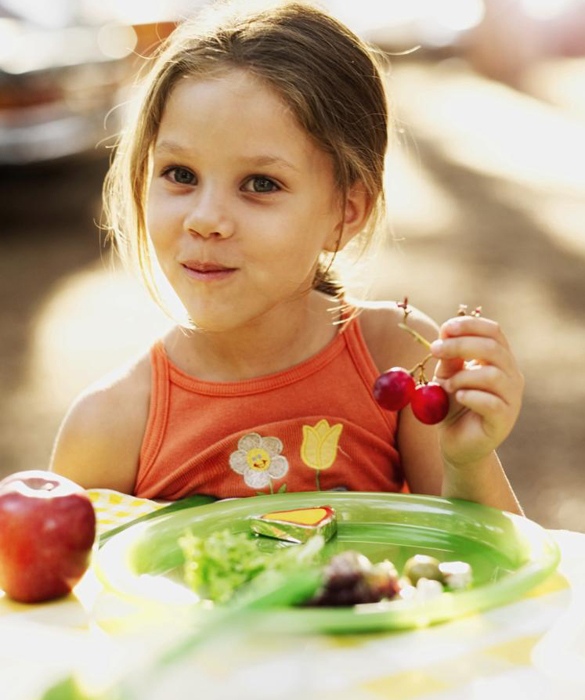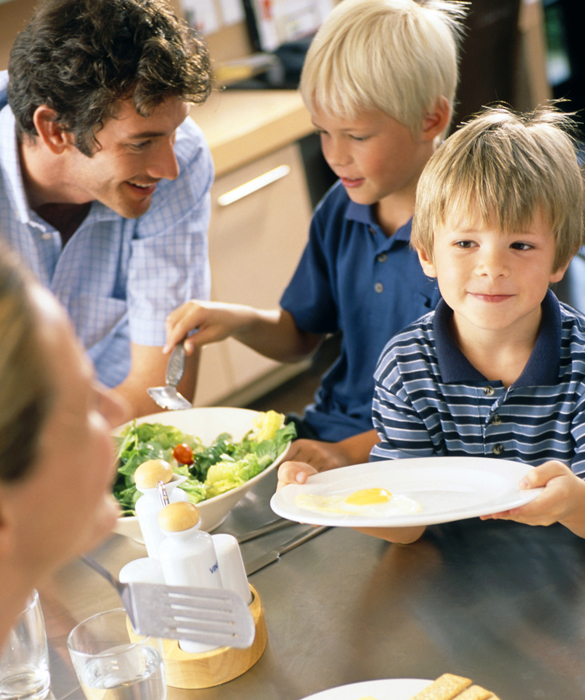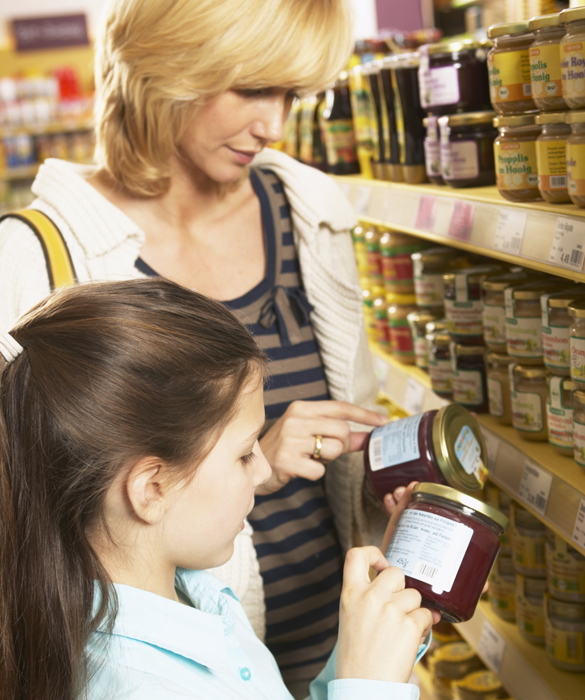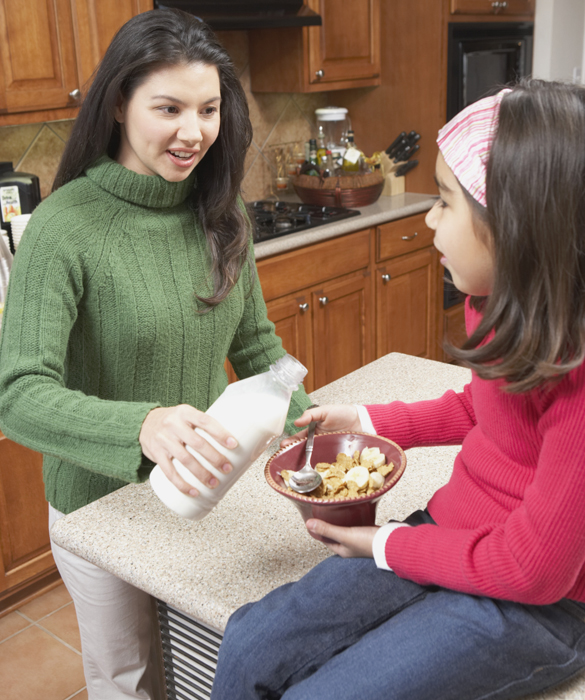Eat Well

Wouldn't it be nice if sugary sodas weren't loaded with empty calories and double cheeseburgers were adequate body fuel? Such foods are intended for rare consumption, but their omnipresence on television advertisements, magazine spreads and billboards make it seem as if they're the most important food group. Despite the abundance of outside influence, it's possible to curb overeating and poor food choices. "Parents are influential forces for change in their children's behaviors and therefore play a critical role in either the development or the prevention of childhood obesity," noted Jennifer Weberman, Psy.D., parent coach and blogger.
Lead by Example

Adults can talk to their children day and night about the importance of eating well and getting exercise, but if they don't lead by example, all that talk is wasted. "Your children learn by watching you, so make sure you're modeling a healthy lifestyle," said Weberman.
Ditch the Clean Plate Club

It's true there are those who go without nourishment in many places around the world, but forcing your child to eat everything on his plate does no good. Instead, Weberman says to "let your child listen to his or her own internal cues for satiation."
RELATED: 10 Habits of Healthy Kids
Eat Slowly

If you and your family are on the run, gobbling your food down can be detrimental. Eating too quickly can lead to overeating since your mind takes longer to catch up with your body. If your child requests seconds, ask her to wait 10 minutes to see if her body still wants food.
Read Labels

Take an active role at the grocery store by reading labels with your child. Many frozen foods or processed snacks contain preservatives and "empty calories"; that is, calories that do not provide nourishment for the body. By reading labels together, your child will better understand why foods that contain hard-to-pronounce ingredients are not a wise choice.
Get Off the Couch

"Get your kids off the couch and moving around," said Weberman. "Ride bikes, play tag, throw a ball, go on a nature walk, make an obstacle course in the basement, put on some music and dance around the living room." Make exercising a family event whenever possible, or set a designated time for each person to do their exercise.
Watch What You Drink

One of the biggest culprits in the obesity epidemic is liquids. It's very easy to chug liquids, especially sweet drinks such as soda or juice. Water should be your top drink of choice and other liquids should be served in very small portions.
Talk About Health

"Educate your child on the importance of good nutrition so that they are naturally inclined towards healthy choices," said Weberman. If you simply say, "No, you cannot eat another cookie," without explaining why he can't, the lesson won't sink in. Talk about the obesity epidemic and discuss how excess body weight can lead to serious physical issues. In addition, talk about the importance of fueling your body with appropriate calories and exercising often.
Avoid the Extreme

It's possible to take things to an extreme when teaching your child about anything, including her health. "Putting too-tight restrictions on snack choices can make unhealthy food choices more appealing," noted Weberman. "They become 'the forbidden fruit' that is enticing because it isn't allowed." To curb this, allow one or two snack-y foods per grocery shopping trip, and serve them in appropriate proportions.
RELATED: Getting Healthy or Getting Thin?



